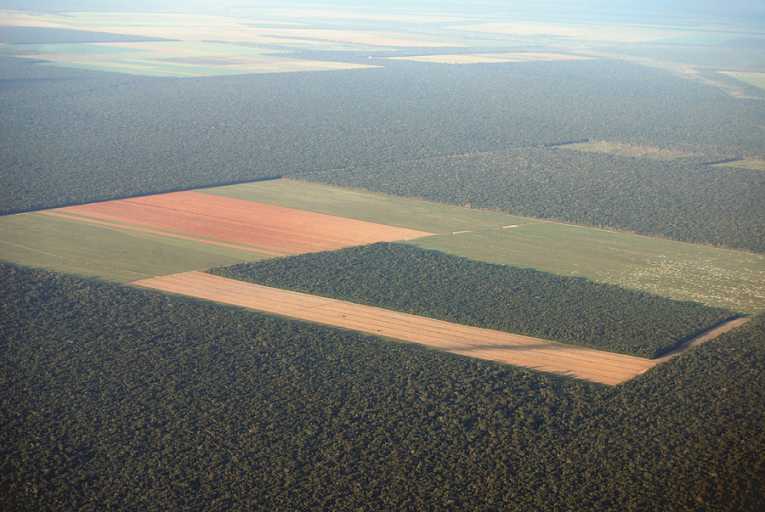Soaring prices for commodities such as soya beans has led to a rapidly rising demand for arable land in Brazil. In turn, this has fuelled tensions among landowners and politicians, some of whom are now questioning the legislation which is currently in place to protect Brazilian forests.
In May, the nation's House of Representatives passed a bill to change the law that governs forests and that has been in place since 1965. This bill is now pending in the Senate, but is opposed by the administration of President Rousseff. There are fears that the new legislation would cause an increase in deforestation in the Amazon.
urrently, landowners in the Amazon must maintain forest on 80% of their land and those who are found to illegally cleared forest must reforest to that level. The bill which is being debated would allow exemptions for small landowners, and give discretion of the 80% rule to state governments. Ultimately, it appears that the bill, if it progresses through the Senate, would result in less stringent legislation in place protecting Brazil's forests. It was reported today in Nature that these changes could legalize the clearing of more than 220,000 square kilometres - an area nearly the size of the United Kingdom - according to an analysis by researchers at the University of Sao Paulo.
These events once again raise the conflict between preserving natural resources and making the most of economic opportunities. Recently, it has been widely reported that some of Ecuador's forests are under threat as they lie above oil reserves. The oil is worth millions of dollars to the Ecuadorian economy but extracting it would destroy pristine forests.
Although the economic circumstances in Ecuador are different from those in Brazil, the two countries face a similar dilemma - do they prioritise the economy or the environment? An alternative view is that these natural resources actually put these countries in a position of power; maintaining forests is probably one of the most straightforward of climate change mitigation options and the international motivation to protect them is high.
So how likely is it that the Brazilian laws will be relaxed? So far in the debate, agricultural interests have been the dominant topic of discussion; it is understandable that the opportunity to create highly profitable arable land is a very attractive prospect to landowners. However, overall public support for forest protection is high. A national poll indicated that 85% of Brazilians value forest protection above agricultural production.
Political support for maintaining forest preservation laws is also high; at the climate talks in Copenhagen in 2009, President Rousseff's predecessor committed the country to reducing deforestation by 80% by 2020. It seems that the current administration is keen to uphold this commitment; in response to recent increases in forest clearance hundreds of law-enforcement officers were sent to the Amazon. All things considered, it would be surprising if the Brazilian government were to relax forest protection laws as it could seriously undermine their credibility in future international climate change talks.
Top Image: Aerial view of a large field to grow soy bean and other crops recently cut in pristine Amazon rainforest in Brazil © 1photo










